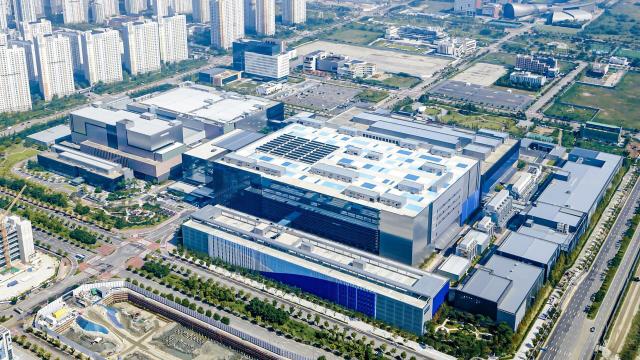
Trump unveiled his push for fossil fuels after his inauguration on Jan. 20, declaring a national energy emergency and withdrawing the United States from the Paris climate accord.
“We sit on the most oil and natural gas of any nation on earth, and we’re going to use it,” Trump said, signaling a dramatic policy pivot toward unfettered fossil fuel production.
The U.S. Energy Information Administration has forecast a drop in Brent crude oil prices to an average of $66 per barrel this year, an 11 percent decrease from this year’s average of $74, driven by concerns about oversupply.
For South Korean refiners, lower crude prices could translate into reduced procurement costs and improved refining margins.
“U.S. fossil fuel production will likely surge, exerting downward pressure on global energy prices,” said Kwon Duk-min, an analyst at Shinyoung Securities.
While the prospect of cheaper oil is enticing, South Korean refiners remain wary. Memories linger of Trump’s first term, when trade friction with China and broader market disruptions undercut potential gains for the energy sector.
Operating profits of South Korea’s four major refiners - SK Innovation, GS Caltex, S-Oil, and HD Hyundai Oilbank - steadily declined during Trump’s presidency from 2017 to 2020.
SK Innovation, for instance, saw its operating profit fall from 3.23 trillion won ($2.24 billion) in 2017 to 1.28 trillion won in 2019. The pandemic-induced demand collapse in 2020 compounded their struggles, pushing all four refiners into losses.
“Lower crude prices could boost margins, but any benefits may be offset by intensified trade barriers or weakened demand from major economies like China,” said Cho Cheol, a senior researcher at the Korea Institute for Industrial Economics & Trade.
South Korean refiners are hedging their bets. Investments in sustainable aviation fuel (SAF) - a cleaner alternative to conventional jet fuel - have gained momentum.
SK Innovation recently became the first South Korean refiner to export SAF to Europe, underscoring the industry’s pivot toward greener solutions.
An industry insider, speaking on the condition of anonymity, emphasized that decarbonization efforts remain critical.
“The global transition toward carbon neutrality is irreversible,” the insider said, urging stronger government support, including tax incentives for SAF production, to ensure the sector’s long-term competitiveness.
Copyright ⓒ Aju Press All rights reserved.





View more comments